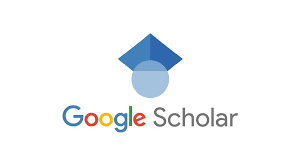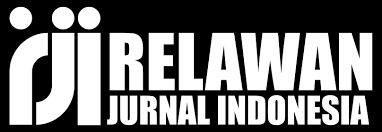PENGELOLAAN BANK SAMPAH MILIK DESA DALAM MENINGKATKAN PENDAPATAN MASYARAKAT DI DESA GUNTUNG
DOI:
https://doi.org/10.61722/jiem.v3i5.4800Keywords:
Management, Waste Bank, Increased IncomeAbstract
The aim of this research is to study or understand waste management in increasing community income in Guntung village. To find out the results of waste management at the village waste bank. This research uses a qualitative approach method. The types of data used in this research are primary and secondary data. Data collection techniques through interviews, documentation. The informants in this research were the chairman of the waste bank and employees of the Guntung village waste bank. The data analysis techniques used in this research are data reduction, data presentation and drawing qualitative descriptive conclusions. The results of research on the Management of Village-Owned Waste Banks in Increasing Community Income use the 3R principle, namely: (reduce) reduce the purchase of goods that contain a lot of waste, (reuse) reuse objects that can still be used, (recycle) recycle used goods into a product that has economic value. Based on the results of the analysis, the role of the waste bank in Guntung village is oriented towards increasing community income and community awareness in managing processed waste that has economic value.
References
Anggreni, P. (2020). Analisis Strategi Pengembangan Usaha Bank Sampah Garuda Wastu Lestari. Jurnal Ilmiah Satyagraha, 1(2), 71–102. https://doi.org/10.47532/jis.v1i2.46
Auda, J. (2021). Maqasid Syariah As Philosophy Of Islamic Law: A System Approach, Alih Bahasa rosidin dan Ali ‘Abd el-Mun’im. Gema Insani Press.
Bakhri, B. S. (2018). Perspektif Ekonomi Syariah Tentang Peranan Bank Sampah Terhadap Kesejahteraan Masyarakat Tempatan. Syarikat: Jurnal Rumpun Ekonomi Syariah, 1(1), 27–38. https://doi.org/10.25299/syarikat.2018.vol1(1).2626
Citra, D. E. (2019). Pengelolaan Sumber Dana Badan Usaha Milik Desa. IAIN Raden Intan Lampung.
Harahap, I. (2018). Ekonomi Pembangunan Pendekatan Trandisipler. Perdana Publishing.
Imsar. (2018). Analisis Strategi Pengembangan Usaha Ucok Durian Medan. Jurnal Tahsiq, 1(2).
Manik, N. N. A., Wibowo, A., & Tambunan, K. (2022). Perspektif Ekonomi Makro Islam Terhadap Pemanfaatan Sumber Daya Alam. Jurnal Penelitian Multidisiplin Ilmu, 1(1), 1–11.
Muzdalifah, I. (2019). Pengelolaan Bank Sampah Untuk Kesejahteraan Masyarakat Rajekwesi Kecamatan Mayon Kabupaten Jepara. UIN Walisongo.
Nawatmi, S. (2010). Etika Bisnis Dalam Perspektif Islam. Fokus Ekonomi (FE), 9(1), 5058.
Padliani. (2020). Peranan Bank Sampah Terhadp Pemberdayaan Ekonomi Masyarakat Dalam Tinjauan Ekonomi Islam. UIN Alaudin Makasar.
Purwanti, I. (2021). Konsep implementasi ekonomi sirkular dalam program bank sampah (Studi kasus: Keberlanjutan bank sampah Tanjung). Jurnal Manajemen Dan Ekonomi, 4(1), 89–98. https://jurnal.unugha.ac.id/index.php/amn/article/view/40/55
Rahmani, N. A. B. (2021). Metodologi Penelitian Ekonomi. Buku Ajar Fakultas Ekonomi dan Bisnis Islam UIN SU.
Rozak, A. (2014). Peran Bank Sampah Warga Peduli Lingkungan (WPL) dalam Pemberdayaan Perekonomian Nasaba. Fakultas Syariah dan Hukum.
Sucipto, C. D. (2012). Teknologi Pengelolaan DaurUlang Sampah. Gosyen.
Tambunan, K. (2021). Pembangunan Dan Pertumbuhan Ekonomi Dalam Perspektif Islam (Ekonomi Islam Sebagai Solusi Krisis Ekonomi). Jurnal of Management, Accounting, Economic, and Business.
Downloads
Published
Issue
Section
License
Copyright (c) 2025 JURNAL ILMIAH EKONOMI DAN MANAJEMEN

This work is licensed under a Creative Commons Attribution-ShareAlike 4.0 International License.












